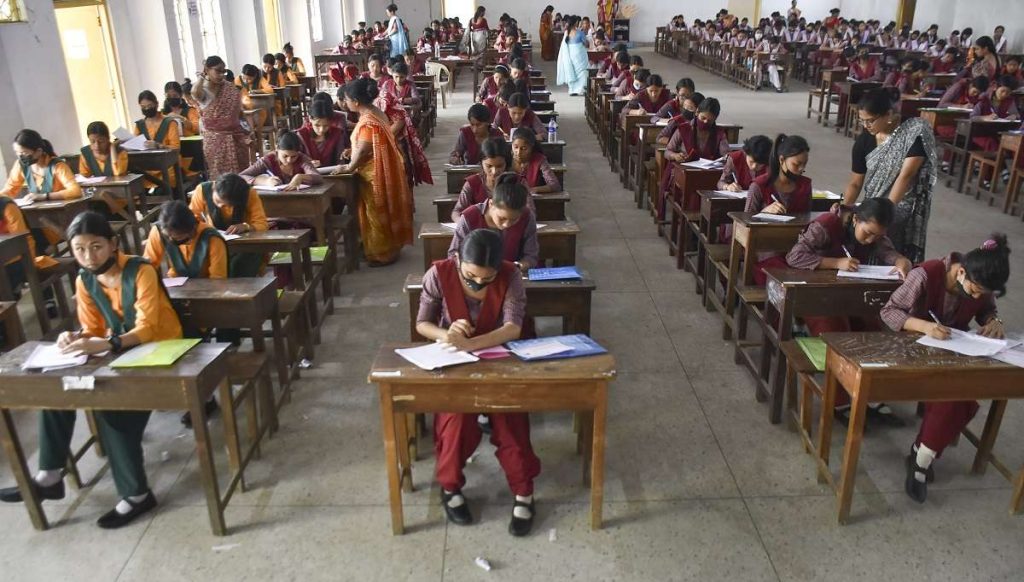Are you confused about the “Open Book Exam”? I guess many of you are. So, we came up with a blog on the topic to answer your confusion. According to reports, CBSE (Central Board Of Secondary Education), which governs millions of students in India, may introduce an open book exam for students from classes 9 to 12.
This initiative is still in the trial stage due to heated discussions on different opinions on both sides. Some are promoting open book exams in India as a motivator for critical thinking and stress reliever. On the other side, some have issues about possible misuse, justice and usefulness.
However, in this blog, we will discuss a few details about the open-book exams. This blog will eventually include:
- What are open-book exams?
- Why are open-book exams a great initiative?
- Examining the pilot program
- Key features of the pilot program
- Advantages of open book exams in India
- Comparison between open book test and traditional test
- Limitations of open book exams
Open Book Exam: What is It?
Open-book exams are assessments where students can bring their own books and notes to refer to during the test. Sounds crazy, right? But it’s been said that the open book exam CBSE can be an innovative approach to testing. It sounds very easy and simple. However, actually, it’s not going to be that simple. To know why and how? Read the full blog.
How will an Open Book Exam in India Help Students?
It’s about promoting a deeper understanding of subjects rather than rote memorization. Open-book exams encourage students to spruce up their creative thinking and cognitive skills. With their study materials on the table during exams, they can focus on critical thinking, problem-solving and comprehension rather than just memorizing facts.
The main purpose of the open book exam in India is to develop the concept of understanding within the students. Also, it aims to enhance the ability to analyze the information given.
Thus, open-book exams are more than just an alternative assessment method. They prepare students for real-life problem-solving when resources are not a limitation. Basically, open-book exams are going to modify the education system.
This exam encourages students to engage in research and cultivate a lifelong learning attitude, which is great for professional success.

The Pilot Program
The pilot program will be about administering an open book exam in some selected schools. Textbooks, notes, and other study materials will be allowed for the students during the exam. However, it is now under trial, and the testing has been planned for November and December 2024.
The main focus of the open book exam in India is to shift from rote memorization to problem-solving skills, knowledge application, and critical analysis.
Thus, they are taking a leave from the traditional closed book format, where emphasis is placed on recalling facts and figures.
Key Features of the Pilot Program
Subject: The pilot program will cover a few selected subjects like Mathematics, Science and Social Science.
Format: The exam format will be a combination of objective-type questions, short-answer questions and long-answer questions. This format will encourage analysis and critical thinking.
Evaluation: This criterion will help assess students’ application of knowledge, ability to think critically and understanding rather than recalling facts.
Advantages of Open Book Exams
Open book exams have many benefits, and are listed below:-
- Open-book exams develop a better understanding of the material through application and analysis.
- They create a healthy learning environment by reducing exam stress.
- They develop research skills and encourage collaborative learning.
- Also, such an exam makes students more attentive in class.
- Open-book exams in India promote application-based learning. In online book exams, students cannot copy or paste the exact answer from the book. A good understanding of a subject helps to answer the question. This allows the student to use application-based learning.
- Students learn from their mistakes. The open-book exam concept helps students realize their mistakes better. They realize their missing points and the reason behind their low marks. Thus, the open-book exam helps students understand their learning skills and where they need to improve.
Comparison of Open Book Test and Traditional Test
- Knowledge retention: The open book test has high knowledge retention power, whereas the traditional test has lower knowledge retention power.
- The main focus of the test – The open book exam focuses on knowledge application, whereas traditional test focuses on memorization, definition, formulas etc.
- Stress levels on students – In open book exams, the stress level is low. On the other hand, in traditional tests, the stress level is high.
- Encourage innovation – The open book exam in India encourages innovation, whereas traditional tests don’t encourage innovation.
Limitations and Challenges of the Open Book Exam in India
Some of the limitations and challenges of open book exams in India are :-
- It can be very challenging for the teachers. The question set up for open book exams, unlike a traditional exam, can be challenging.
- For some students, it may reduce motivation to study. When students know that they are allowed to bring their study material to the exam hall, they may not put much effort into their studies.
- Inequality among students may take place. The availability of different resources for different students can create an inequality. Thus, the students with better and high quality study materials may have the best advantage.
- Time management challenges can be faced. Students can spend too much time searching for answers, which can lead to incomplete and rushed answers.
- The plagiarism rate can be high. Students may copy direct answers from the book.

Final thought
Introducing an open-book exam in India can be a great step taken by CBSE. With this, students will experience a fully new education system. The students will get a wide range of benefits through the open-book examination. Basically, they are on the way to developing themselves in so many ways.
Open book exam is also a wonderful opportunity for students who are not the strongest test takers. Now, it’s their time to show their skills and knowledge. Furthermore, with the assessment technologies, it is easier to conduct an open book exam in India. Anyways, to know more, follow our website.
FAQs
1. What types of questions are asked in open book exams in India?
An open book exam basically includes comprehensive questions which you can answer taking help from the book. You just need to understand the material and problem-solving by conceptual application.
2. Is an open book exam good for students?
Definitely, they are good for students. As they are allowed with the textbooks, and the study materials during the exam, this makes them feel more confident in their ability to answer. Also, such an exam helps students by reducing their stress level.
3. Is the open book exam easy?
Though it sounds easy, it’s not as easy as the traditional form of exam. You cannot simply copy and paste your answers from the book. You must develop cognitive skills and critical thinking to answer the questions given in an open book exam.



Comments 0